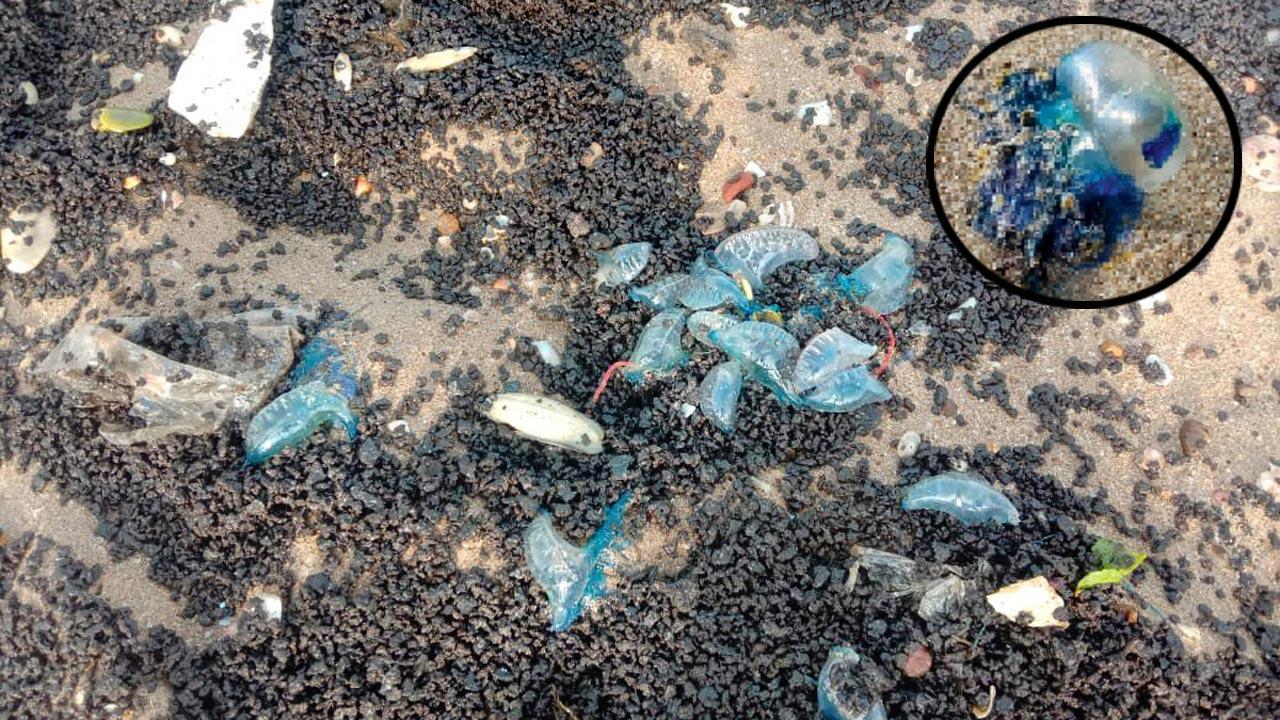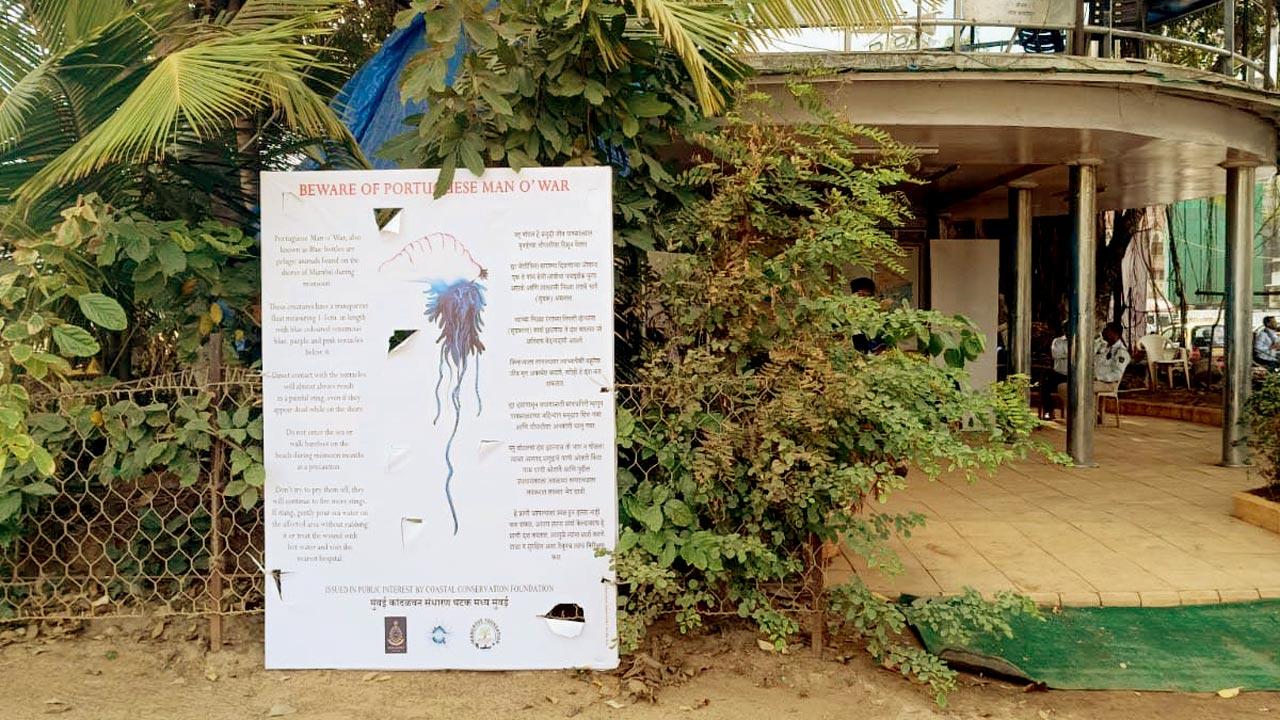Sightings of marine creatures prompt caution as visitors fall victim to stings at Juhu beach

During monsoon every year, Portuguese man o’ war frequently wash ashore on Mumbai’s beaches
Visitors at Juhu beach fell victim to the sting of the Portuguese man o’ war on Sunday night. Six individuals, including children, sought medical attention at Cooper hospital, where they were promptly attended to and subsequently discharged after treatment.
Visitors at Juhu beach fell victim to the sting of the Portuguese man o’ war on Sunday night. Six individuals, including children, sought medical attention at Cooper hospital, where they were promptly attended to and subsequently discharged after treatment.
According to a Brihanmumbai Municipal Corporation (BMC) press statement, “Six people, including children, arrived at Cooper hospital on Sunday between 7.10 pm and 8.10 pm after being stung by jellyfish at Juhu beach. The on-duty medical personnel attended to them and sent them home after treatment.”
The patients were identified as Mehtab Shaikh, 20, Dikshad Mehta, 5, Mohammad Mansoori, 4, Metwish Sheikh, 6, Mohammad Rajaullah, 22, and Arartiya Pramuh, 25.
 Banners at Girgaon Chowpatty alert visitors of the presence of Portuguese man o’ war
Banners at Girgaon Chowpatty alert visitors of the presence of Portuguese man o’ war
Mangrove cell of the forest department, marine enthusiasts, and individuals dedicated to marine conservation in Mumbai have been issuing warnings to beachgoers, urging caution due to reported sightings of Portuguese man o’ war along the coastline. Banners have been strategically placed on Mumbai’s beaches to alert visitors about the presence of Portuguese man o’ war.
During the monsoon season each year, Portuguese man o’ war or blue bottle frequently wash ashore on Mumbai’s beaches. It is advised that beachgoers refrain from touching these creatures. A recent report by mid-day provided guidance on what to do if accidental contact occurs—washing the affected area with seawater or lukewarm water can alleviate pain.
For years, these marine creatures have been spotted on various Mumbai beaches during the monsoon season, resulting in instances of accidental stings for unsuspecting individuals who step on them.
But what exactly are the jellyfish-looking creatures? The blue bottle, which are found in the Atlantic Portuguese region, boasts a bubble-like body and tentacles measuring 18 cm to 20 cm in length. As a defence mechanism, these creatures tend to discharge their tentacles towards any perceived threat.
The name—Portuguese man O’ war—is derived from their appearance, resembling the distinctive hat worn by Portuguese warriors. If stung, the victim experiences intense pain for a duration of 1 hour to thre hours. In severe cases, where the venom reaches the lymph nodes, individuals can suffer from swelling in the throat, cardiac distress, and breathing difficulties.
 Subscribe today by clicking the link and stay updated with the latest news!" Click here!
Subscribe today by clicking the link and stay updated with the latest news!" Click here!










